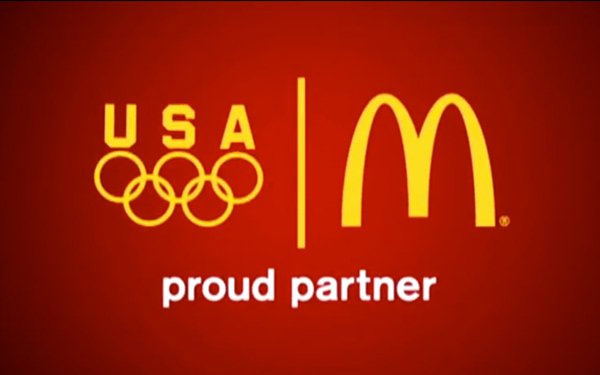
After a relationship that began more than 40 years
ago, McDonald’s said it would cease its official alliance with the International Olympic Committee and the U.S. Olympic Committee three years before the end of its current deal “to focus
on different priorities.”
McDonald’s, which had worked with the IOC since 1976, extended its deal as a global partner in 2012 through 2020.
“As
part of our global growth plan, we are reconsidering all aspects of our business and have made this decision in cooperation with the IOC to focus on different priorities,” says Silvia Lagnado,
McDonald’s global CMO.
“We have been proud to support the Olympic Movement, and we thank our customers and staff, the spectators, athletes and officials, as well
as the IOC and local Olympics Games organizing committees, for all of their support over the years.”
advertisement
advertisement
The IOC said it “has no immediate plans to appoint a direct
replacement in the retail food operations sponsorship category, and will review the category in the broader context of existing Olympic marketing programs.”
That could, in
effect, set up a bidding war for a chance to become a domestic restaurant partner with the USOC, if not globally with the IOC, among such players as Burger King, Chick-fil-A, Taco Bell, Wendy’s,
Buffalo Wild Wings and even Starbucks.
“In today’s rapidly evolving business landscape, we understand that McDonald’s is looking to focus on different business
priorities,” says Timo Lumme, managing director for IOC Television and Marketing Services. “For these reasons, we have mutually agreed with McDonald’s to part ways.
“I would like to thank our friends at McDonald’s on behalf of the IOC for the commitment the company has shown to the Olympic Movement over many decades.”
Although the decision takes effect immediately, McDonald’s said it would continue to be a sponsor for the 2018 Winter Games in PyeongChang “with domestic marketing rights in the
Republic of Korea only,” as well as restaurants in the Olympic Park and the Olympic Village.
“Thanks to McDonald’s for serving Team USA at home and at Olympic
Games around the world for more than 30 years,” the USOC wrote on its Twitter page.
McDonald’s is now added to a list of companies that for various reasons since
November ended their official Olympic alliances, including former USOC partners Anheuser-Busch (Budweiser), AT&T, Citigroup and TD Ameritrade.
The remaining 12 IOC Top Tier
sponsors are Alibaba, Atos, Bridgestone, Coca-Cola, Dow, GE, Omega, Panasonic, P&G, Samsung, Toyota and Visa.
According to the IOC, Dow, GE, Panasonic, P&G, Samsung, Toyota
and Visa have agreements through 2020; Bridgestone, Panasonic and Toyota through 2024; Alibaba through 2028; and Omega through 2032.
“The IOC’s sponsorship strategy is
aimed at delivering long-term partnerships that help the Olympic movement achieve the objectives set out in Olympic Agenda 2020, our strategic roadmap for the future,” says Lumme. “This
strategy is exemplified by the recent announcement of long-term, ground-breaking agreements with new and existing global partners.”
In addition to PyeongChang, the upcoming
Olympic schedule includes the 2020 Summer Games in Tokyo and the 2022 Winter Games in Beijing.
The IOC is scheduled to name host cities for the 2024 and 2028 Summer Games this
September, with Paris and Los Angeles as the only two candidates.
Barry Janoff is executive editor of NYSportsJournalism.com and a contributor to Marketing:Sports.